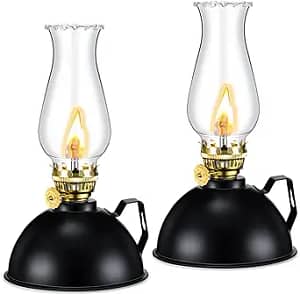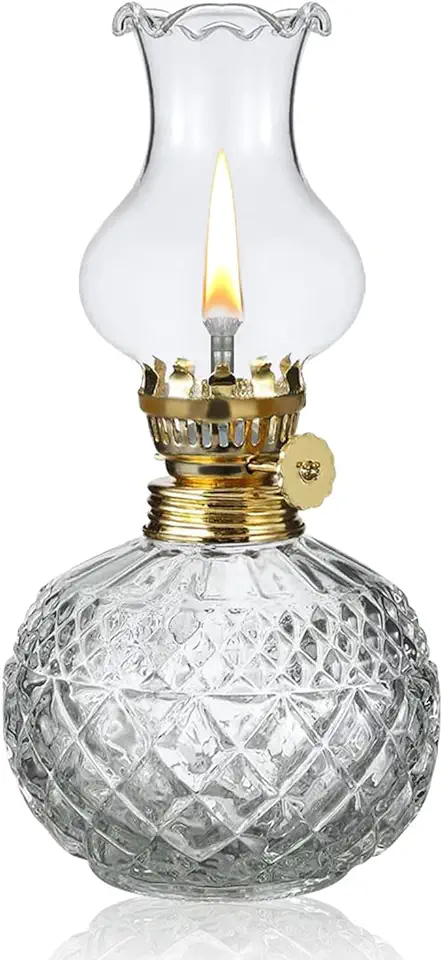DISCLAIMER: This blogs contains affiliate links, which means that if you click on one of the product links, I’ll receive a small commission. © All rights reserved by respective owners.
Oil lamps have been used for centuries to provide light in homes and outdoor spaces. Their simplicity, reliability, and warm glow make them a popular choice for those seeking an alternative to electric lighting. In this article, we will be focusing on oil lamps and providing an honest review of their pros and cons, as well as comparing them with other types of lamps.
Pros of Small Oil Lamps
oil lamps offer several advantages that make them a desirable lighting option:
- Ambiance: The soft, flickering light emitted by an oil lamp creates a cozy and intimate atmosphere, perfect for relaxation or romantic evenings.
- Portability: oil lamps are compact and lightweight, making them easy to carry and move around. They are ideal for camping trips, outdoor gatherings, or as emergency lighting during power outages.
- Long-lasting: Oil lamps can burn for hours on a single fill, providing continuous light without the need for frequent refilling or battery replacement.
- Cost-effective: Compared to electric or battery-powered lamps, small oil lamps are more economical in the long run. They require minimal maintenance and fuel costs are relatively low.
- Environmentally friendly: Oil lamps do not produce harmful emissions or contribute to electricity consumption, making them a greener lighting option.
Cons of Small Oil Lamps
While oil lamps have their advantages, it’s important to consider the following drawbacks:
- Fire hazard: Oil lamps involve an open flame, which poses a potential fire hazard if not used and monitored carefully. It is crucial to keep them away from flammable materials and never leave them unattended.
- Smoke and odor: Some oil lamps may produce smoke or emit a noticeable odor, especially if low-quality fuel is used. However, this can be minimized by using high-quality lamp oil and maintaining the lamp properly.
- Maintenance: Oil lamps require regular cleaning and maintenance to ensure optimal performance. This includes trimming the wick, removing soot buildup, and refilling the oil reservoir.
- Limited light output: oil lamps may not provide as much brightness as electric lamps or other modern lighting options. They are better suited for accent lighting rather than illuminating large areas.

Comparison with Other Lamps
When comparing oil lamps with other types of lamps, it’s essential to consider the specific needs and preferences of the user:
- Electric Lamps: Electric lamps offer convenience and instant light at the flip of a switch. They are brighter and more suitable for tasks that require ample illumination. However, they are dependent on electricity and may not be suitable for outdoor use or during power outages.
- Candle Lamps: Candle lamps provide a similar ambiance to oil lamps but require regular replacement of candles. They are generally safer than oil lamps since they do not involve an open flame, but they can be less reliable in terms of burn time.
- Solar-Powered Lamps: Solar-powered lamps are an eco-friendly alternative that harnesses the power of the sun. They are ideal for outdoor use and do not require fuel or electricity. However, they may not provide consistent light during cloudy days or in areas with limited sunlight.
If you are interested in other lamps read our other blogs
In conclusion, oil lamps offer a unique and nostalgic lighting experience. They create a warm and inviting ambiance, are portable and cost-effective, and have minimal impact on the environment. However, they require careful handling due to the fire hazard and may not provide as much brightness as other modern lighting options. When choosing a lamp, it’s important to consider personal preferences, safety concerns, and the specific lighting needs for different situations.




